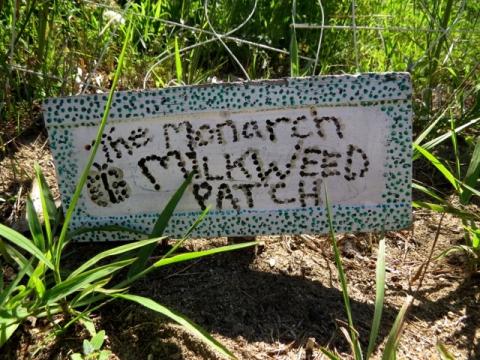Kingston’s Pollinator Corridor Project

Our large human footprint is taking its toll on wild creatures including pollinators such as bees and butterflies. These tiny members of our ecosystem are at risk. When wetlands and meadows are separated by roads, housing, acres of parking lots and general human activity our little pollinators are being killed because of the lack of the resources that they need.
A corridor for pollinators is made when properties that are providing food for these little guys are near or next to each other. These areas are like stepping stones giving them places to find what they need. For example we are most used to seeing the Monarch Butterflies and know they need milkweed to survive. Milkweed…one of those ‘weeds’ that gets weeded out of most gardens. Start by making a patch of milkweed plants somewhere on your property. We could, as a town, eventually provide a pollinator corridor from Plaistow to Epping and other surrounding towns.
Kingston is very lucky in many ways. We have quite a lot of conserved lands and lots of wetlands and water. But our farmland has mostly been turned into house lots. Pollinators need fields full of all the plants that provide food for them. Putting in gardens all through town will help fill this void. In the process we’ll have a town full of flowers. It’s a win-win . These individual gardens can be the pathways between larger wild habitats.
Making this corridor would be the easiest thing to do. Plant a garden on your property. It can small or big. It’s up to you. Even easier: don’t mow all your lawn(s), let some of it go wild with native grasses, bushes (blueberries?) and plants. The birds around you will love you for it. Let the edges of your lawns ‘go wild’ don’t mow right up to the edge. leave a few feet for native plants and grasses.
NH is very supportive of projects like this one. I will be collecting information on seeds and plants that are native to our area. I will send it out and post it soon. I plan on keeping you in touch with information that will help make this project successful. Feel free to email me with comments or questions or suggestions.
I’m not forgetting that some of you are interested in helping out on trails work and general Kingston Conservation Commission efforts. We really need you too, even if you don’t want to be a gardener.